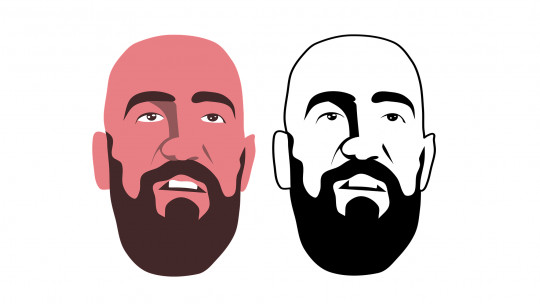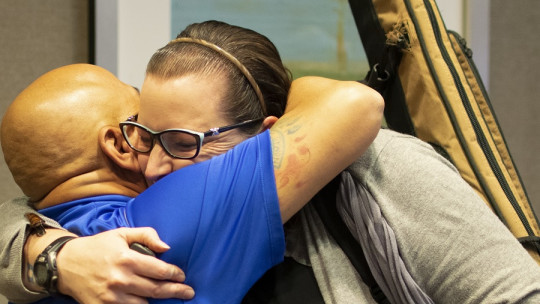On several occasions we have spoken in Psychology and Mind about the difficulties that people who have low self-esteem go through. Before starting to read this text, we recommend that you take a look at the following posts:
“10 keys to improve your self-esteem in 30 days”
“The 4 types of self-esteem: do you value yourself?”
“Low self-esteem? “When you become your worst enemy”
People who underestimate themselves: what do they have in common?
Are you one of those people who underestimate themselves? Maybe this is not your case, but you surely know someone in your family or circle of friends who underestimates themselves. We live in a competitive environment in which we are very prone to underestimating other people, but this problem can also affect a person in relation to their opinion of themselves.
Many people tend to have a bad opinion about themselves, and this is a problem that limits them in their personal and work lives. The causes of underestimation are quite specific: lack of self-confidence, insecurity, complexes…
In today’s article we are going to know the behavioral and psychological keys of people who underestimate themselves. If you think you may have a problem similar to the one we describe, it will be a good idea to get to work to improve this important aspect of your psychological health.

1. You are excessively modest
Are you excessively humble? Modesty is a common point among people who underestimate themselves. This does not mean that all modest people underestimate themselves, but it is very common for insecure people to respond to a compliment with “it’s not that big of a deal.”
In this case, the best advice is to let yourself be loved by others. Accepting praise and praise is a good way to connect with another person. Humility is a virtue, but you must also be aware of your strengths. One thing does not eliminate the other.
2. You value the opinion of others too much
People who do not value themselves enough often make constant references to other people’s opinions. Examples of this: “My boyfriend says that…”, “My boss always tells me…”. This, although a priori not something bad, does denote a certain insecurity in oneself, and therefore these people seek to reaffirm what they believe based on the opinion and positions of authority figures.
Always speaking in support of what others said before is a sign of vulnerability and lack of self-confidence. Your opinions are yours and you must make them count.
3. You always put other people’s well-being first.
People who are always thinking about the well-being of others are usually considered kind and altruistic. It’s a positive thing, but Be careful if you always put the happiness of others above your own. Because maybe you are underestimating your value as a human being.
If you see that everything you do is focused on satisfying others, you should remind yourself that you also deserve moments of happiness. It’s not bad to indulge yourself from time to time.
Learn more: “Wendy syndrome: people with fear of rejection”
4. You are an easy target for laughter and ridicule.
Insecure people are constantly thinking about the impression they leave on everyone they meet. Is it so difficult to stop thinking about it? For someone who underestimates him, he is, a lot. This causes anxiety and can provoke ridicule and laughter from the people around them.
You must learn to improve your self-confidence. When you act naturally, without artifice, people notice and value it positively. If, on the other hand, you are too concerned about being liked, you will cause the opposite effect.
5. You doubt your possibilities
Everyone has unique qualities, but people who underestimate themselves are unable to realize them. They live thinking that they are just one more person in a million and that they do not particularly stand out in anything. This may mean that they do not risk saying what they feel towards another person, or that they feel satisfied with very little in the workplace.
These types of defeatist thoughts only make you sink and not raise your head. They are the source of insecurity. If you don’t believe in yourself, who will?
6. You feel good in your comfort zone
One of the causes of the insecurity felt by people who underestimate themselves is their inability to leave their comfort zone. They are comfortable having a gray life and do not feel strong enough to improve their situation. Instead of fleeing from everything that makes them feel bad, insecure people tend to withdraw into themselves; they remain motionless.
You must try to get out of this vicious circle and look for tools that can help you improve your self-esteem. Through these tips you may be able to realize that something is not going quite right in your life. The time has come to find the way to have better self-esteem and start valuing yourself for what you are worth, which is a lot.









